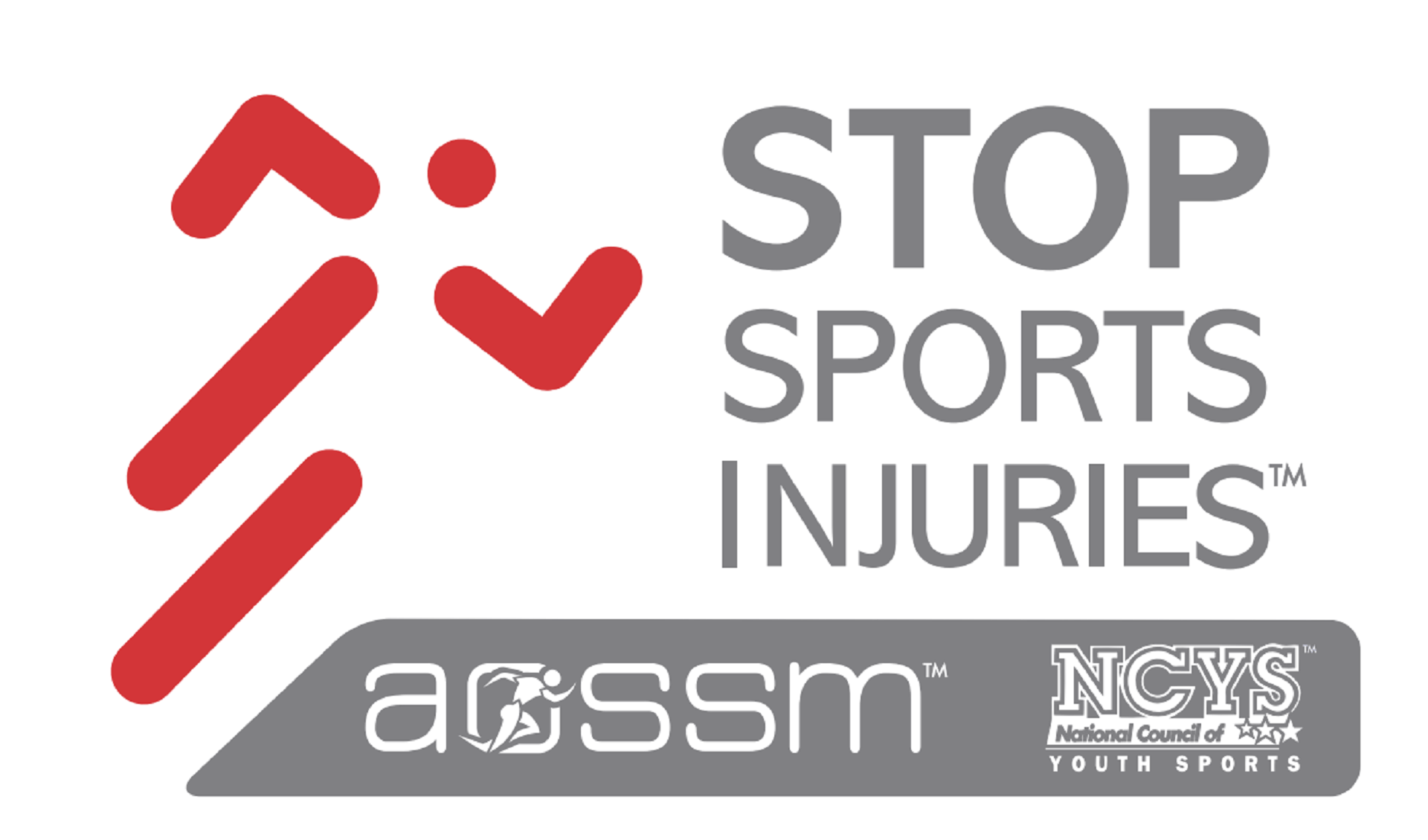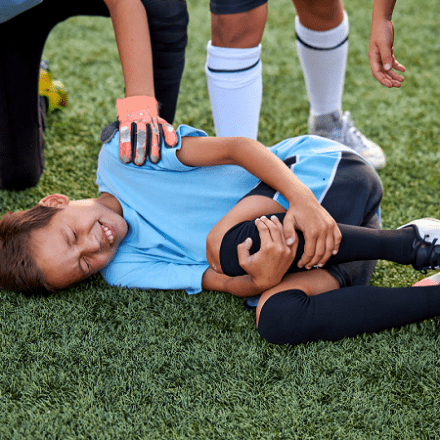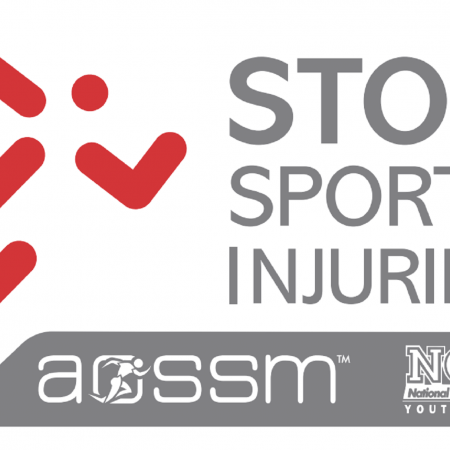To help keep young people in the game for life, AOSSM and NCYS have teamed up to present STOP (Sports Trauma and Overuse Prevention) Sports Injuries. Check out our helpful evidence-based tip sheets to learn about how to keep youth athletes safe while playing sports.
Keep Youth in the Game
Best Practices in Youth Sports Injury Reduction and Prevention
Youth sports participation is a critically important part of our communities. It promotes health and leadership benefits, helps prevent chronic disease and provides protective factors for reducing risky behavior. Youth sports injuries are the enemy of participation.
The good news: According to the Centers for Disease Control and Prevention (CDC), more than 50 percent of these injuries are preventable. Click here for the origins of STOP Sports Injuries.






